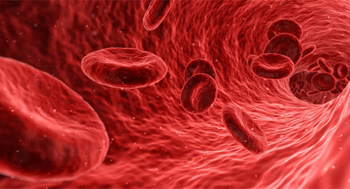Washington, Feb 21: The fat around arteries may play an important role in keeping the blood vessels healthy, according to a study in rats that may affect how researchers test for treatments related to plaque buildup, as seen in conditions leading to heart attack.

The study, published in the journal Scientific Reports, noted that the fat, known as perivascular adipose tissue, or PVAT, helps arteries let go of muscular tension while under constant strain.
According to the researchers, including Stephanie W. Watts from the Michigan State University in the US, this feature is similar to how the bladder expands to accommodate more liquid, while at the same time keeping it from spilling out.
"In our study, PVAT reduced the tension that blood vessels experience when stretched," Watts said.
"And that's a good thing, because the vessel then expends less energy. It's not under as much stress," she added.
According to Watts and her team, PVAT has largely been ignored by researchers believing its main job was to store lipids and do little more.
Until now, she said, scientists only divided blood vessels into three parts, the innermost layer called the tunica intima, the middle layer called the tunica media, and the outermost layer called the tunica adventitia.
Watts believes PVAT is the fourth layer, which others have called tunica adiposa.
Tunica, she said, meant a membranous sheath enveloping or lining an organ, and adiposa is a synonym for fat.
"For years, we ignored this layer -- in the lab it was thrown out. In the clinic it wasn't imaged. But now we're discovering it may be integral to our blood vessels," Watts said.
"Our finding redefines what the functional blood vessels are, and is part of what can be dysfunctional in diseases that afflict us, including hypertension. We need to pay attention to this layer of a blood vessel because it does far more than we originally thought," she added.
Earlier studies, Watts said, had shown that PVAT plays a role in the functioning of blood vessels, finding that it secretes substances that can cause blood vessels to relax as well as substances that can cause it to contract.
In the current study, the researchers decided to test whether PVAT provides a structural benefit to arteries by assisting the function of stress relaxation.
They tested the thoracic aorta in rats, and found those with intact PVAT had more stress relaxation than those without.
The study revealed that the pieces of artery with surrounding fat had measurably relaxed more than those without.
Watts and her colleagues then tested other arteries, and were able to duplicate the same response.
"It's not something you see only in this particular vessel or this particular species or this particular strain. But that maybe it's a general phenomenon," she said.




Comments
Add new comment